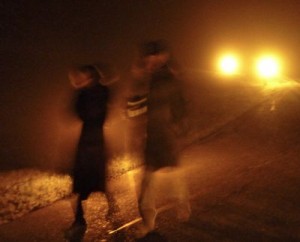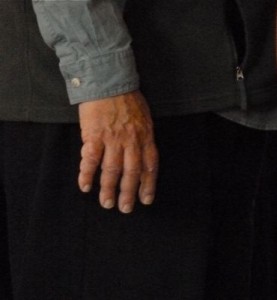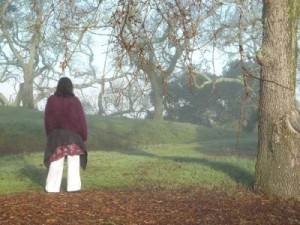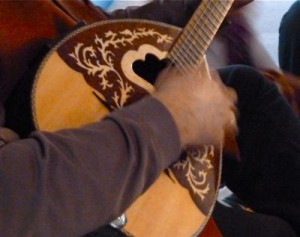Full-Spectrum Forgiveness, Part 12: Social Appearances & Inner Wounds, Part 2

Positive people who have not experienced or do not accept emotional pain radically limit their ability to include and support others. This story shows how social contexts can suppress inner wounds:
One of my most vivid memories from seventh grade involves a lovely young man, a Christian in my singing class. He came from a loving, intact family. One day he made an overture to me, to join in an after-school activity. I remember vividly the intense sensations that passed through me and the aftermath of this tiny moment. His eyes were so happy, so full of light. I so much wanted to join him. I actually sensed IN and THROUGH him his family and community support, and how loving they were to one another. I hesitated in terror that they would reject me, and asked a few questions to try and find out if I were truly welcome as myself. The light faded from his eyes. He did not meet me as I was. I could see the shroud of “other” settle between us. It felt like becoming a non-person.
an after-school activity. I remember vividly the intense sensations that passed through me and the aftermath of this tiny moment. His eyes were so happy, so full of light. I so much wanted to join him. I actually sensed IN and THROUGH him his family and community support, and how loving they were to one another. I hesitated in terror that they would reject me, and asked a few questions to try and find out if I were truly welcome as myself. The light faded from his eyes. He did not meet me as I was. I could see the shroud of “other” settle between us. It felt like becoming a non-person.
Over the next few weeks I turned this event over in my mind. I realized at some point that his group was looking for recruits. They wanted me to believe something. Part of me wanted to believe it because I thought it might make me happier. I watched. What I saw struck me deeply. I noticed that the people in that group turned away from any expression of distress, however subtle.
I almost judged them for dismissing the people who needed them most. Then I realized that they simply were not equipped to deal with anybody who did not come from the same mold. They had great hearts and intentions. But they lacked depth. Their lack of depth diverted their compassion to the extent that they had no idea whatsoever that they were exclusive and closed to people who were in pain, people they could help.
I am not saying this is true of Christian groups in general. I am saying that the same thing happens, to a lesser or greater extent if more subtly, at a cultural level. Those who have not experienced suffering are generally incapable of compassion for those who hurt. And why not? It is not in their realm of experience.
I thought about that young man on and off in the course of my life. I wondered how he unfolded, whether he ran toward the arrogance of assuming that his way was better and isolated himself within his comfort zone, or whether his lovely heart gradually opened him to new people and experiences. He could have gone either way.
Those who come from families who seem to “have it all” and do not have a heart focus as his  did often become hardened to feeling and focus on external attainment. Their children tend to lack compassion and even look down upon those who are in pain—and themselves when THEY are in pain.
did often become hardened to feeling and focus on external attainment. Their children tend to lack compassion and even look down upon those who are in pain—and themselves when THEY are in pain.
Serious competition is not compatible with compassion. When we get caught up in trying to be better than others they become heads to walk over. This is an extreme state of ego with the wounds hidden and denied. It’s all about the outside.
Even being ‘all about other people’ can become an ego defense. It can be another way of being all about the outside. Those who study what it takes to please others and do it in order to avoid pain by securing love for themselves have not processed their wounds. They may have authentically loving natures and values. In general they get by well in the world. They may even get by in close friendships with clearly defined roles. Profound intimacy challenges people who use this defense because it goes beyond roles, brings up wounds for healing, and requires receptivity.
Forgiveness asks of us to feel first what is going on inside and to understand that others too are molded by life circumstances and conditions.
How do YOU feel around people who are in pain?
Are you able to be present with them, or do you turn away?
What do you tell yourself about people you perceive as being better than or not as good as you are?




























